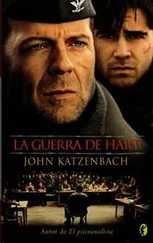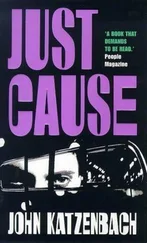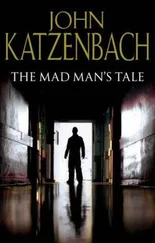That, Ricky thought, was intelligent.
He knew who it was who wanted him to kill himself, he just didn’t know their names. He knew why they wanted him to kill himself. And he knew that if he failed in that demand, they had the capacity to do precisely what they had promised to do from the very first day. The bill for services.
He knew the havoc that they had produced in his last two weeks would evaporate when Ricky met the deadline. The fiction of sexual abuse that had skewered his career, the money, the apartment, the entirety of what had befallen him over the course of fourteen days would unravel instantly, as soon as he was dead.
But beyond that, he thought, the worst thing of all: No one would care.
He had isolated himself professionally and socially over the past few years. He was, if not estranged, certainly cut off and distant from his relatives. He had no real family, and no real friends. He thought his funeral would be crowded with people in dark suits, wearing faces displaying sufficient fake concern and false regret. Those would be his colleagues. There would be some people in the church pews who were former patients whom he had helped, he thought. They would wear their emotions appropriately. But it is the cornerstone of psychoanalysis that a successful treatment would put all those folks into a realm where they were free of anxiety and depression. That was what he had designed for them, in years of daily sessions. So, it would be unreasonable to ask them to actually shed a tear on his behalf.
The only person likely to squirm on the hard wooden church bench with genuine emotion was the man who’d created his death.
I am, Ricky thought, utterly alone.
What good would it do to take the letter, circle the name R. S. Skin in red ink, and leave it behind for some detective with the note: This is the man who made me kill myself.
The man did not exist. At least, not in a plane where some local policeman in Wellfleet, Massachusetts, at the height of the busy summer season, where crimes were defined primarily by middle-aged folks driving home from parties drunk, domestic squabbles among the wealthy, and rowdy teenagers trying to buy any variety of illegal substances, would be capable of finding him.
And worse, who would believe it? Instead, what anyone looking at Ricky’s life would discover almost instantly was that his wife had passed away, his career was in tatters due to allegations of sexual misconduct, his finances were a mess, and his home had been accidentally destroyed. A fertile groundwork for a suicidal depression.
His death would make sense to anyone glancing at it. Including every colleague he had back in Manhattan. On the surface, his death at his own hand would be an absolute textbook case. No one would pause and think it unusual for even a second.
For an instant, Ricky felt a surge of anger directed at himself: You made yourself into such an easy target. He clenched his hands into fists and placed them hard on the tabletop in front of him.
Ricky took a deep breath and spoke out loud: “Do you want to live?”
The room around him was silent. He listened, as if half expecting some ghostly response.
“What is it about your life that is worth living?” he demanded.
Again, the only reply was the distant humming of the summer night.
“Can you live, if it costs someone else their life?”
He breathed in again, then answered his own question by shaking his head.
“Do you have a choice?”
Silence answered him.
Ricky understood one thing with a deep and crystal clarity: Within twenty-four hours Dr. Frederick Starks had to die.
The final day of Ricky’s life was spent in fevered preparations.
At the Harbor Marine Supply store he purchased two five-gallon outboard motor fuel tanks, the fire-engine red painted type that sit in the bottom of a skiff and plug into the engine. He picked out the cheapest possible pair, after rudely asking assistance from a teenage boy who was working in the store. The boy tried to steer him toward slightly more expensive tanks, that were equipped with fuel gauges and a safety pressure release valve, but Ricky rejected these with a show of disdain. The boy also asked why he needed two, and Ricky made a point of saying that just one wouldn’t do for what he had in mind. He feigned anger and insistence and was as pushy and unpleasant as he could manage, right through the moment where he paid cash from his reserve for the tanks.
As soon as the transaction was completed, Ricky stopped, as if remembering something, and abruptly demanded the teenager show him the selection of nautical flare pistols. This the boy did, bringing out a half dozen. Ricky selected the cheapest, once again, although the teenager warned him that the pistol had a very modest range, and was only likely to shoot a flare fifty or so feet into the air. He suggested that other models, just slightly more expensive, would send flares significantly higher, thus providing an extra margin for safety. Again, Ricky was dismissive and insulting, told him he only expected to use the flare a single time, and, as before, paid cash after complaining about the overall cost.
The teenager, Ricky imagined, was delighted to see him leave.
His next stop was at a large chain pharmacy. He walked to the rear of the store and asked to see the head pharmacist. The man, wearing a white jacket and a slightly officious air, emerged from the back. Ricky introduced himself.
“I need a scrip filled,” he said. He gave the pharmacist his DEA authorization number. “Elavil. A thirty-day supply of thirty milligram tablets. Nine thousand milligrams, total.”
The man shook his head, but not in disagreement, more in minor surprise. “I haven’t filled that much in a long time, doctor. And there are some far newer drugs on the market that are more effective, with far fewer side effects, and not nearly as dangerous to take as Elavil. It’s almost an antique. Hardly ever used nowadays. I mean, I’ve got some in storage that’s still within its expiration date, but, are you certain that this is what you want?”
“Absolutely,” Ricky answered.
The pharmacist shrugged, as if saying that he’d done his best to dissuade Ricky and steer him toward some other mood elevator that was more efficient. “What name shall I put on the label?” he asked.
“My own,” Ricky replied.
From the drugstore, Ricky went to a small stationery outlet. Ignoring the rows upon rows of prefabricated get well, condolence, new baby, happy birthday, and anniversary cards that cluttered each aisle, Ricky picked out a cheap tablet of ruled letter paper, a dozen thick envelopes, and two ballpoint pens. At the counter, where he paid for the purchases, he was also able to obtain stamps for the envelopes. He needed eleven. The young woman manning the register didn’t even look him in the eye as she rang up the order.
He threw this collection of items into the backseat of the old Honda, and quickly drove down Route 6 toward Provincetown. This town, at the end of the Cape, had an unusual relationship with the other nearby vacation spots. It catered to a far younger and considerably hipper crowd, often gay or lesbian, that seemed the polar opposites of the more conservative doctors, lawyers, writers, and academicians who were drawn to Wellfleet and Truro. These two towns were all about relaxing, drinking cocktails, and discussing books and politics and who was getting divorced and who was having an affair, and therefore had a certain near-constant stodginess and predictability about them. Provincetown in the summer had a musical beat and sexual energy. It wasn’t about relaxing and finding rhythms, it was about partying and connection. It was a place where the demands of youth and energy were paramount. There was little chance that he would be seen by anyone who knew him, even tangentially. Consequently, it was the ideal spot for Ricky to acquire his next items.
Читать дальше












